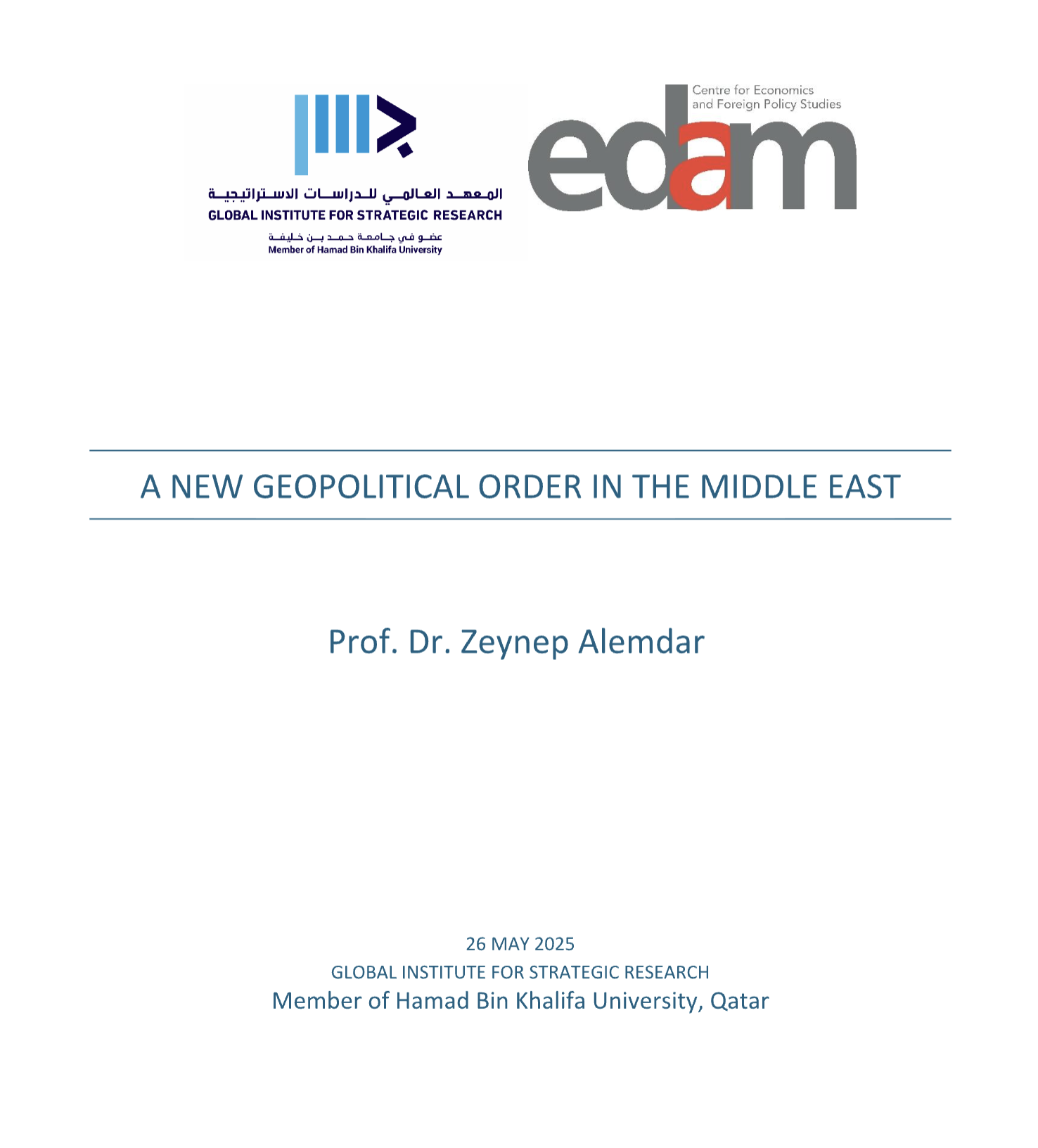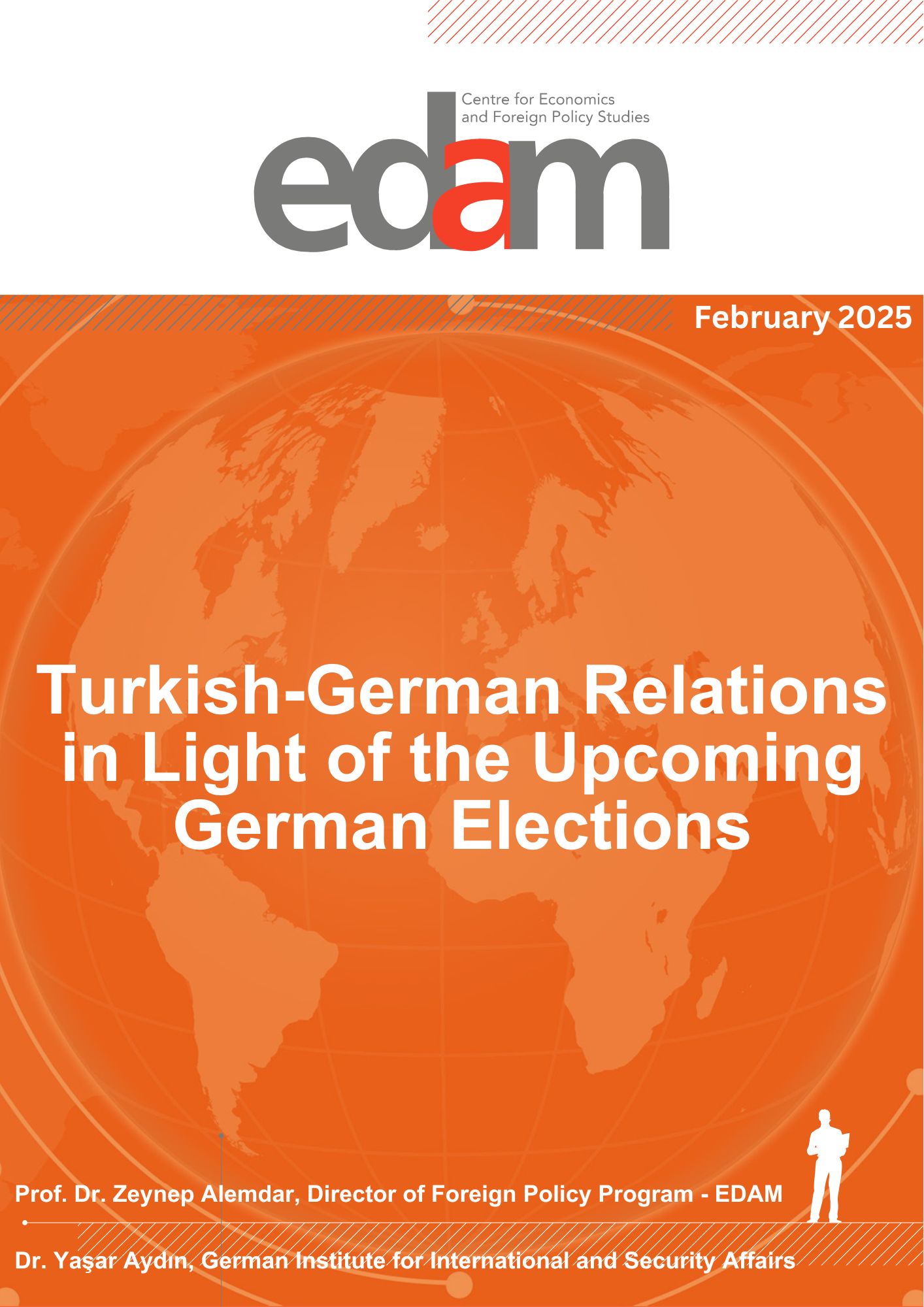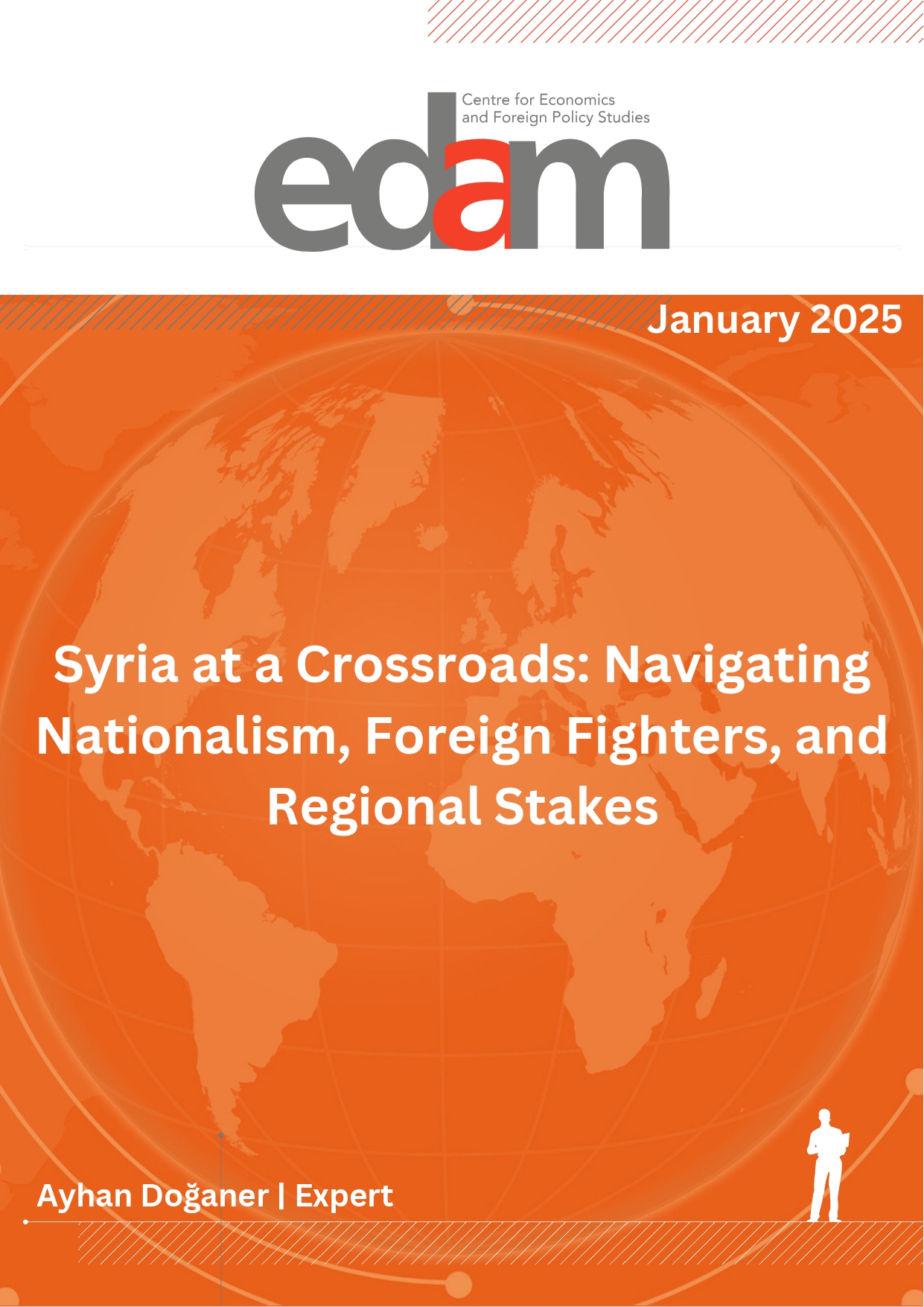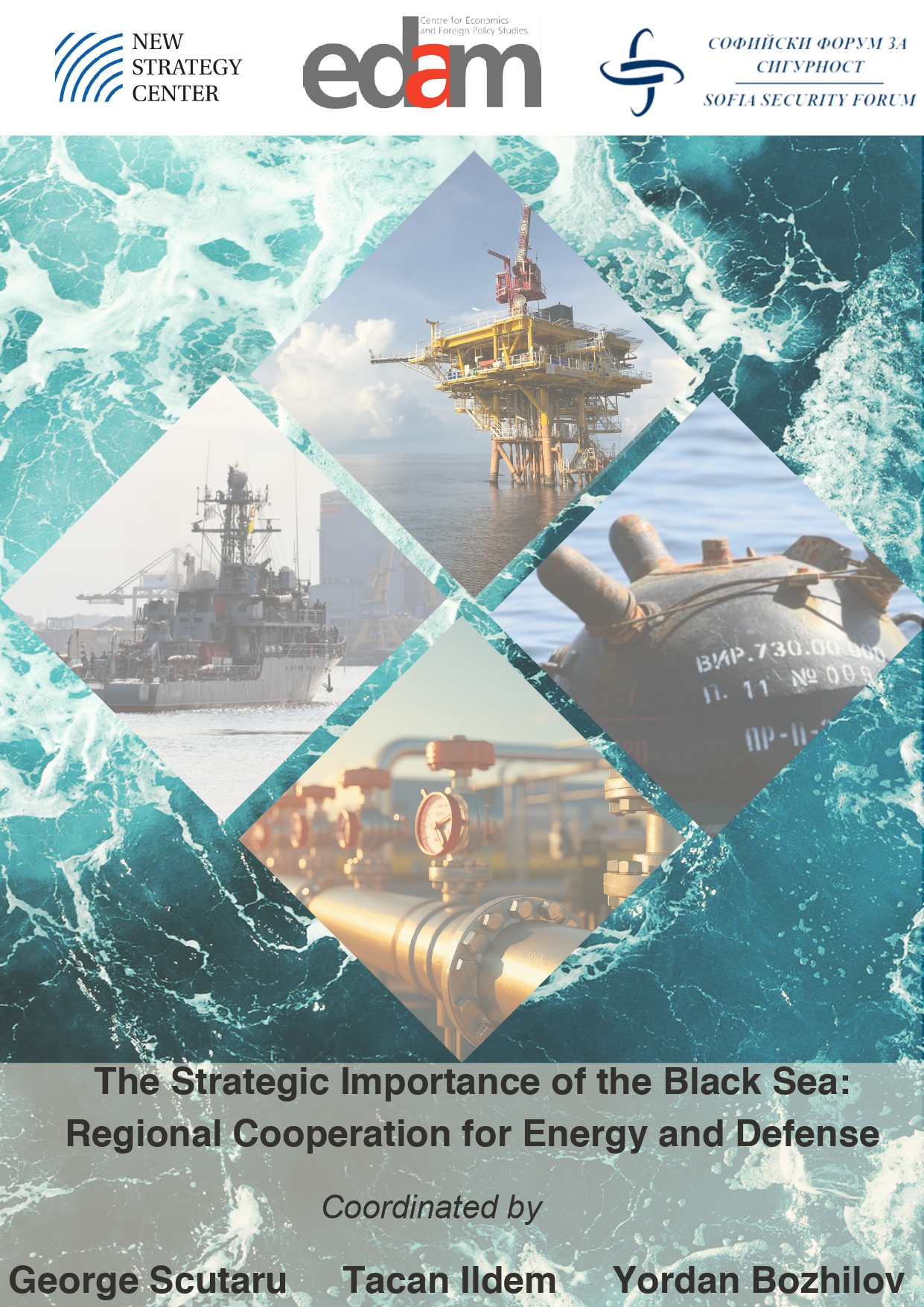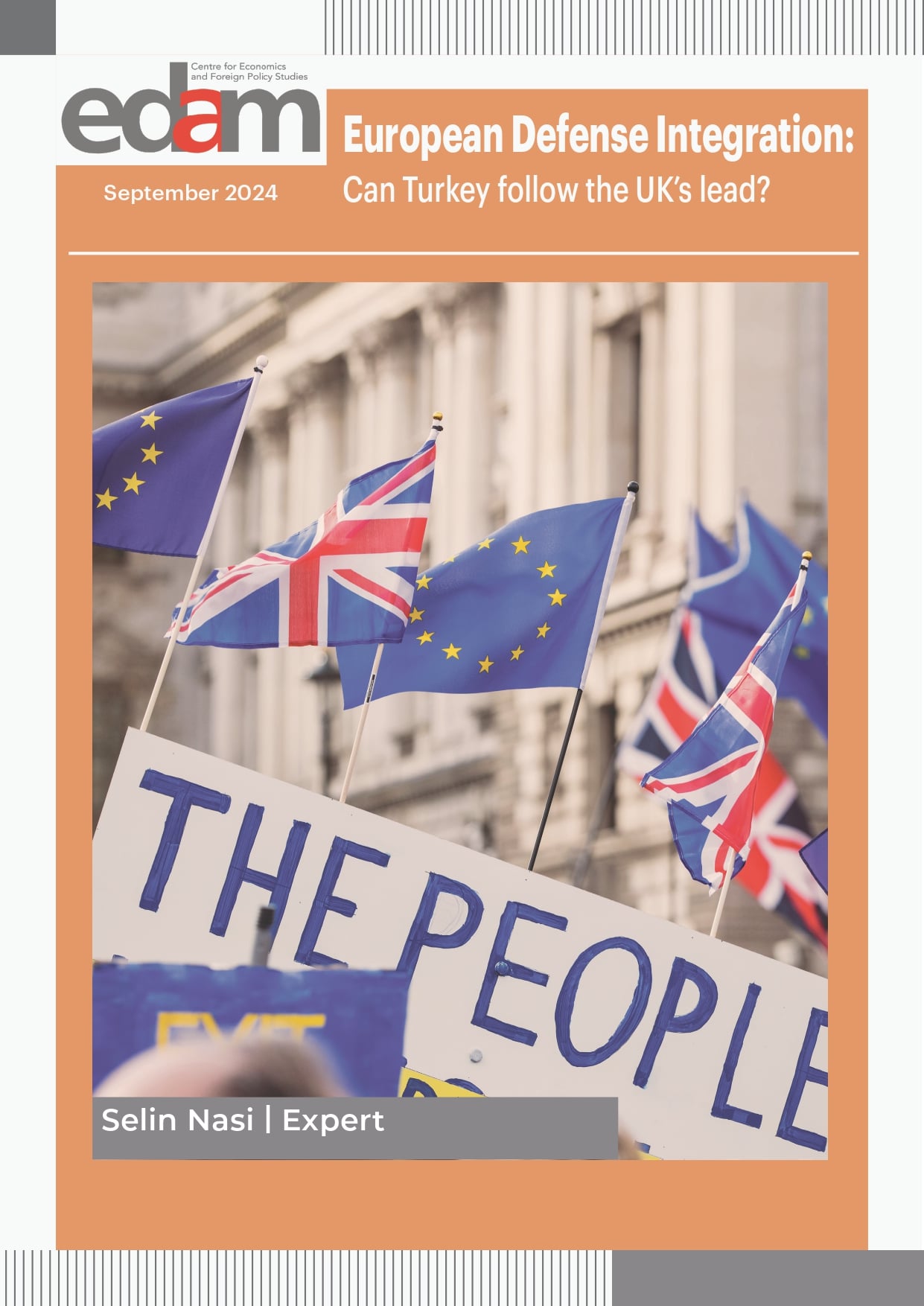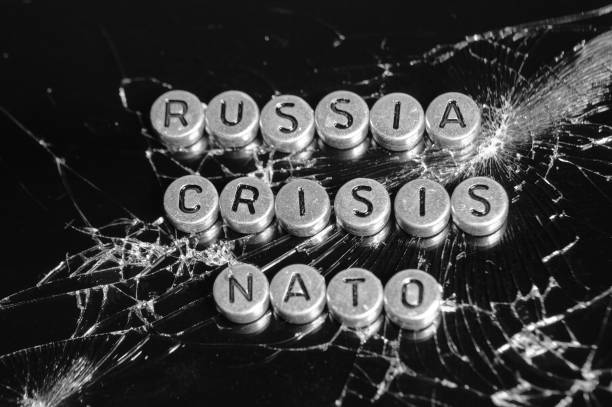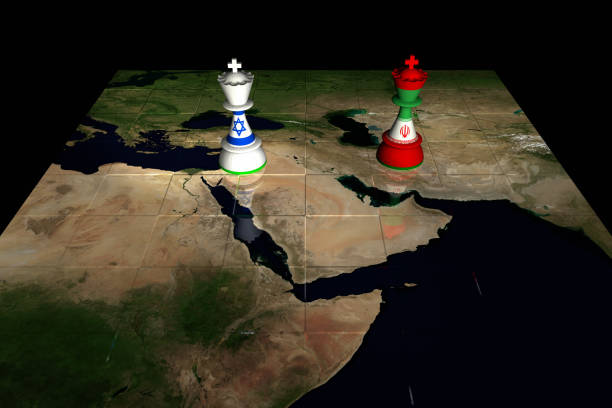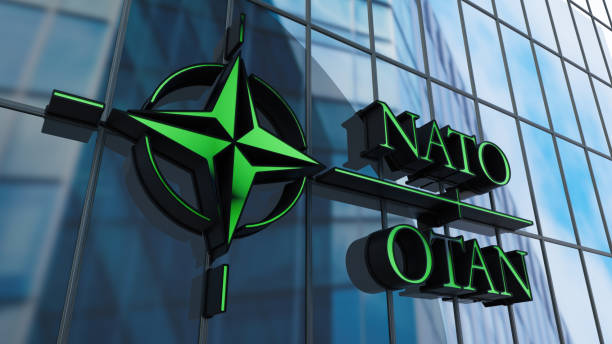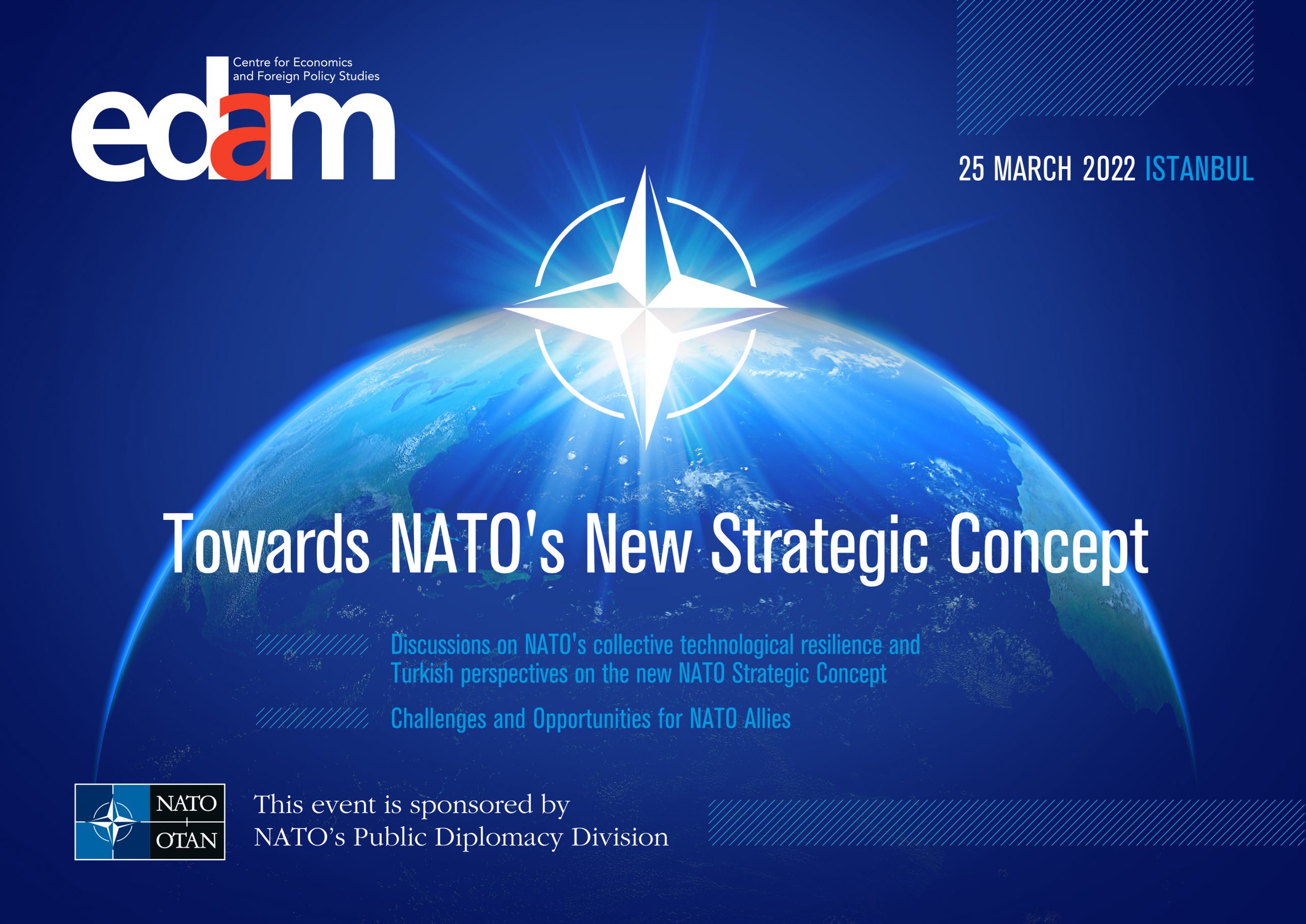
Turkish Perspectives on the New NATO Strategic Concept
Executive Summary
- As an indispensable Ally, Turkey is committed to NATO’s core values, preserving unity, internal cohesion, and standing in solidarity with other Allies and partners.
- Turkey has, and will, fulfill its national responsibilities to ensure that NATO remains militarily strong and politically coherent, and offers the leading platform for transatlantic consultations.
- Turkey welcomes constructive initiatives focusing on enhancing the cooperation among Allies on counterterrorism, tackling threats from the Southern Flank, and encouraging military technology transfer.
- Bilateral disagreements may occur among the Allies; however, the new Strategic Concept must foster dialogue to reinforce Allied unity, solidarity and internal cohesion.
Introduction
In June 2012, NATO Heads of State and Government agreed to develop a new Strategic Concept, which they will endorse during the Madrid Summit in June 2022, as a step to make the Alliance ‘futureproof’.[1] The Current Strategic Concept adopted in Lisbon Summit in 2010 served NATO Allies well regarding conventional security threats. However, as the Russian invasion of Ukraine revealed once again, it is no longer sufficient to address the unpredictable and evolving security environment.
This background brief emphasizes the discussions around the new NATO Strategic Concept. First, the paper underlines political and strategic takeaways from these discussions. Then the following chapter frames the key priorities and threat assessment of an indispensable NATO Ally, Turkey. Furthermore, this paper aims to lay the foundation for the panel titled “Turkish Perspectives on the new NATO Strategic Concept.”
Why a New Strategic Concept and Why Now?
The Strategic Concept sets out the guideline for the political and military stance of the Alliance, as it indicates the vision for the upcoming decade.[2] The current Strategic Concept was adopted in the Lisbon Summit in 2010, titled “Active Engagement, Modern Defence.” It underlined three essential core tasks – collective defense, crisis management, and cooperative security.[3] Although it explains traditional security challenges well, the paper still refers to Russia as a partner that the Alliance should seek constructive cooperation. On the other hand, NATO’s 2010 threat assessment did not assess climate change, China, emerging & disruptive technologies, and geopolitical ramifications of pandemics.
Since the 2010 Strategic Concept, the Allies have witnessed significant trends that have impacted their security and defense outlook. These include, but are not limited to, the Libya campaign, Russia’s invasion of Crimea in 2014 and the ongoing renewed invasion of Ukraine, differing views on EU’s strategic autonomy, Brexit, the U.S. withdrawal from Afghanistan and signing of the AUKUS pact. Given the complex and trying security environment NATO Allies should strengthen the political consultation among themselves by using NATO more as a unique and essential transatlantic consultation forum. By adopting a new Strategic Concept, the Alliance should remain strong militarily, become stronger politically and pursue a more viable global approach.
Below, we highlighted some of the issues of importance that the 2022 Madrid Strategic Concept will probably touch upon:
- The Transatlantic bond will continue to be the foundation of all Strategic Concepts. Strengthening the role of NATO and reaffirming the transatlantic principles of solidarity, unity, and cohesion for the European Allies will be on the agenda.[4]
- The Concept will reaffirm the aggressive pattern of behavior of Russia and terrorism in all its forms and manifestations as the main sources of threat the Alliance will face in the foreseeable future. The Concept will also have a focus on China as a rising power in the systemic geopolitical rivalry and will seek ways to address it from both the prism of challenges and opportunities.
- With the 360-degree approach in addressing threats and challenges emanating from all geographical directions the regional stability in the South will undoubtedly be among the priorities for those Allies in the South. NATO must articulate a consistent, clear and coherent approach to the South, addressing both traditional threads like terrorism, and growing presence of Russia and to a lesser extent China.[5]
- With hybrid concepts blurring the line between peacetime and conflict resilience will feature more prominently in the new Strategic Concept.
Turkish Perspectives on the New NATO Strategic Concept & Beyond
Since 1952, Turkey has been committed to NATO’s core tasks as an indispensable Ally with critical military capabilities.[6] Especially with the imminent security concerns coming from all directions, Turkey will continue with its substantial contributions to the Alliance.[7] Below, we assess some critical areas of concern in this respect;
- Turkey has always been one of the leading nations within the Alliance with its counterterrorism priorities. NATO leaders manifest terrorism as a persistent, shared threat to all Allied nations and populations. NATO needs to update its strategies and policies by integrating fight against terrorism into all three core tasks more explicitly. Turkey seeks a mechanism within NATO to politically consult for relevant actions to address this asymmetric threat. The counterterrorism efforts by some Allies and their bilateral interactions with specific non-state violent organizations in Syria remain a crucial concern for Turkey.[8]
- From the Turkish perspective, although European strategic autonomy can boost European Allies’ defense capabilities, NATO should remain as the cornerstone of European security and defense. The recognition that NATO remains the transatlantic framework for strong collective defense and essential forum for security consultations and decisions among Allies. As the Reflection Group in its report states: “efforts at the EU’s ‘strategic autonomy’ should be developed in a spirit of NATO cohesion and with the aim of achieving a common vision by fully respecting and building on the foundations of cooperation between NATO and the EU”. On the other hand, Turkey encourages increased transparency, information sharing, enhanced political consultation, and cooperation if, and only, they complement – not try to replace – NATO.[9] Turkey reaffirms that NATO Allies who are not the EU Member States should be included in the EU exercises, defense capacity-building efforts, and security and defense mechanisms, such as PESCO.[10] The fullest involvement of the non-EU Allies in EU’s initiatives will be essential for strategic partnership between the two organizations.
- Emerging and disruptive technologies present themselves as an opportunity and a challenge for the Alliance. However, not all Allies have the same capabilities to preserve the technological threshold hence initiatives such as the Defense Innovation Accelerator and the Innovation Hub may enhance the Allies’ posture on critical technologies.[11] Turkey encourages increasing investments in military technology transfer and defense industry cooperation among the Allies.
Way Forward
There are critical questions for the NATO Allies moving forward to the Madrid Summit in June 2022. Admittedly, it is too soon to lay down the exact contents of the New Strategic Concept. However, the NATO2030 agenda somehow gives an idea of the main subjects.[12] In cooperation with its key partners, the Alliance must deter new security threats, defend its fundamental values in an era of strategic rivalry, and commit to cooperative security and crisis management. Accordingly, the new Strategic Concept will outline strengthening the transatlantic bond deepening existing partnerships while addressing the hybrid threats, resilience, and climate-security nexus.[13]
Political disputes and internal strains exist within the 73 years old Alliance. Nonetheless, for Turkey, NATO’s internal cohesion is critically important to maintain. The core decision-making is built on consensus, and Allies may have different priorities in their respective security and defense outlook.
From the Turkish viewpoint, there are political and strategic priorities in the forthcoming strategic concept document. Counterterrorism, threats emancipating from the South, defense industry cooperation, and missile defense loom large in its security agenda. Besides, Turkey encourages complementary EU efforts in addition to Allied responsibilities within NATO structures.
[1] “Leaders agree NATO 2030 agenda to strengthen the Alliance”, NATO, June 2021. Available at https://www.nato.int/cps/en/natohq/news_184998.htm?selectedLocale=en. NATO, “Brussels Summit Communiqué”, June 2021. Available at https://www.nato.int/cps/en/natohq/news_185000.htm
[2] NATO, “Strategic Concepts.” Available at https://www.nato.int/cps/en/natohq/topics_56626.htm
[3] “Active Engagement, Modern Defence,” NATO, November 2010. Available at https://www.nato.int/cps/en/natohq/official_texts_68580.htm
[4] Elcano, “NATO gets an update: the Madrid Strategic Concept,” January 2022. Available at https://www.realinstitutoelcano.org/en/analyses/nato-gets-an-update-the-madrid-strategic-concept/
[5] NATO 2030: United for a New Era https://www.nato.int/nato_static_fl2014/assets/pdf/2020/12/pdf/201201-Reflection-Group-Final-Report-Uni.pdf
[6] Tuba Eldem, “Spotlight Turkey: A Pivotal Swing State in NATO,” Turkish Policy Quarterly, September 2021. Available at http://turkishpolicy.com/article/1070/spotlight-turkey-a-pivotal-swing-state-in-nato
[7] Tacan İldem & Fatih Ceylan, “Stratejik Otonomi, ABD, Avrupa ve Türkiye”, Yetkin Report, January 2022. Available at https://yetkinreport.com/2022/01/03/stratejik-otonomi-abd-avrupa-ve-turkiye/
[8] Güvenlik Akademisi XV: Kapanış Konuşması: Türkiye’nin Güvenlik Sorunları ve Politikaları, December 2020. Available at https://www.youtube.com/watch?v=EloEExsw00Q&t=1159s
[9] Tacan İldem, “NATO Zirvesi ve NATO 2030: Yeni çağ için birliktelik”, Fikir Turu, June 2021. Available at https://fikirturu.com/jeo-strateji/nato-zirvesi-ve-nato-2030-yeni-cag-icin-birliktelik/
[10] Tacan İldem & Fatih Ceylan, “Yeni Gerilimler Sarmalı ve Türkiye”, September 2021. Available at https://edam.org.tr/yeni-gerilimler-sarmali-ve-turkiye/
[11] NATO identifies Artificial Intelligence, big-data processing, quantum-enabled technologies, autonomy, biotechnology, hypersonic and space as the key emerging and disruptive technologies (EDTs). https://www.adsgroup.org.uk/blog/diana-natos-new-defence-innovation-accelerator/
[12] NATO, “NATO2030: Making a Strong Alliance Even Stronger”. Available at https://www.nato.int/nato2030/
[13] “NATO 2030: a transatlantic agenda for the future”, NATO, June 4, 2021. https://www.nato.int/cps/en/natohq/opinions_184636.htm
